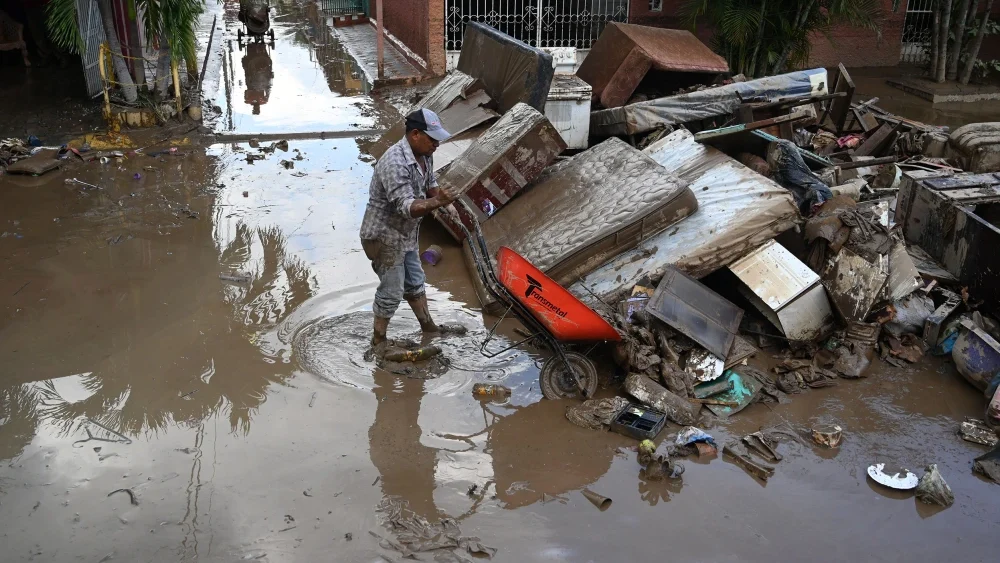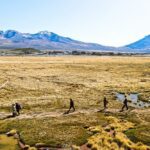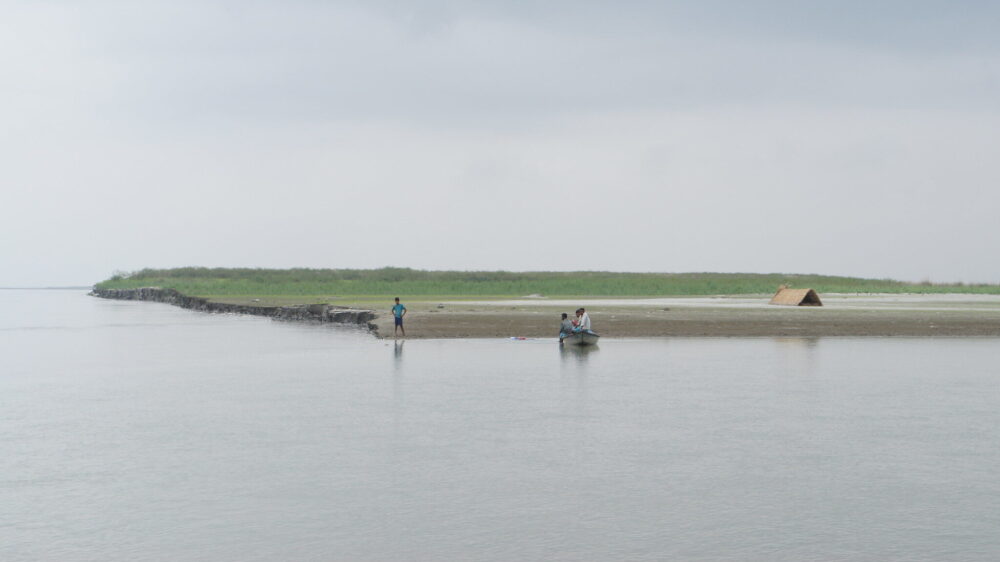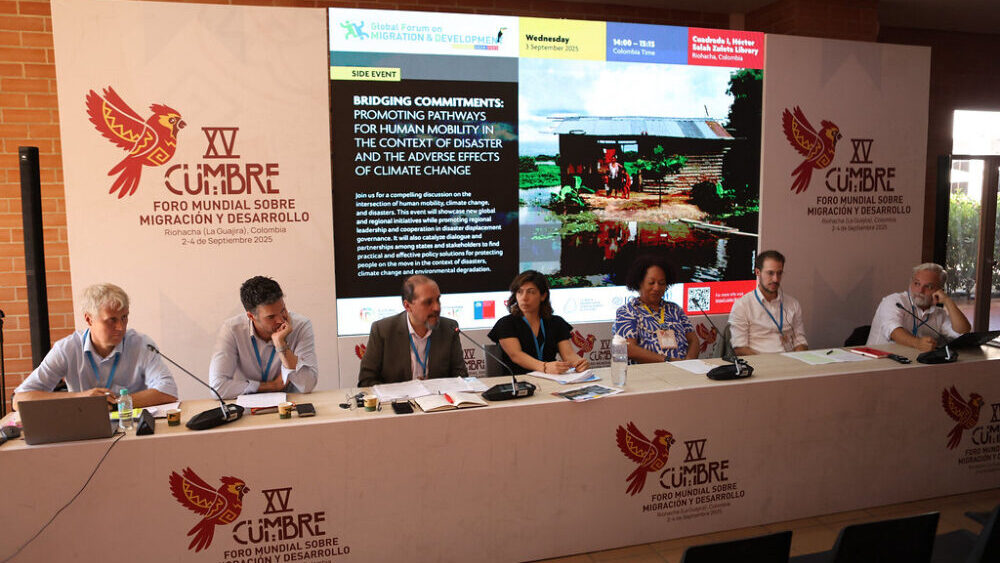Virtual Event – Underlying Causes of Disaster and Climate Change-Induced Internal Displacement

7 November 2024: A virtual consultation on the ‘Underlying Causes of Internal Displacement due to Disasters and Climate Change’ was held under the auspices of the Comprehensive Regional Protection and Solutions Framework (MIRPS). This event was supported by the Platform on Disaster Displacement (PDD) and brought together key representatives from civil society and academia, offering a platform to present research and share insights. Participants highlighted regional progress and examined specific case studies from Central America, where the impacts of climate change on human mobility are increasingly evident.
This initiative aligns with Belize’s 2024 MIRPS Work Plan, building on the achievements of Honduras’s presidency in 2022, when the first virtual regional consultation on underlying causes of disaster and climate-induced internal displacement was held.
The consultation featured research and contributions on disaster displacement and climate change impacts from various academic and civil society organizations, including RESAMA (Red Sudamericana para las Migraciones Ambientales), the Observatorio de Juventud y Familia at Universidad Don Bosco, and CGIAR. Additionally, the consultation provided updates on legislative and policy advancements addressing disaster and climate change-induced displacement in MIRPS member countries.

One of the highlights of the event was the presentation of a new upcoming policy on internal disaster displacement by the government of Honduras. This policy represents a significant advancement in addressing the challenges posed by climate-induced displacement within the country and offers a framework for more effective prevention, response, and support for displaced populations. This policy underscores Honduras’s commitment to building resilience in the face of climate-related disasters and serves as a model for similar efforts across the region.
The consultation aimed to strengthen regional analysis of displacement drivers and foster a collaborative approach among MIRPS member countries. Another core objective was to identify patterns, projections, and trends essential for understanding displacement dynamics linked to disasters and climate change, with a view to develop more effective prevention and mitigation strategies across the region.

The MIRPS is a pioneering regional mechanism that brings together seven Central and North American countries—Belize, Costa Rica, El Salvador, Guatemala, Honduras, Mexico, and Panama—to address forced displacement through coordinated actions. Supported by UNHCR and the Organization of American States (OAS), MIRPS fosters collaboration to implement protection and solutions strategies for internally displaced persons, refugees, and asylum-seekers, promoting regional stability and resilience in the face of growing displacement challenges.
For more information on MIRPS, please visit their website and their document on the details on the 2022 consultation.
Header photo: Orlando Sierra / AFP via Getty Images









